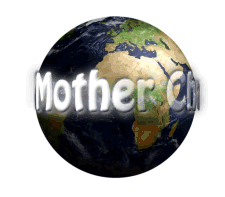Theo de Jager engages in a thought-provoking discourse on the contemporary challenges confronted by family farms in the wake of a shifting global perspective on food systems. The backdrop to his discussion is the recent Food System Summits, particularly the main summit held in Rome, which prompted a collective reevaluation of our approach to food production. He underscores the profound impact of this reevaluation on agriculture, especially family farms, as the narrative of obtaining raw food solely from traditional farming is questioned.
A central theme in his narrative is the encroaching centralization of power within food systems. He articulates concerns about the burgeoning notion that food can be synthesized in factories rather than sourced directly from farms. This shift, he argues, is fueled by major conglomerates aiming to control the protein market, potentially dictating dietary norms for the global populace. The consequential pressure on family farms, especially those catering to the lower economic strata, becomes palpable as affordability and immediate sustenance take precedence over nuanced dietary considerations.
In examining the dynamics between producers and consumers, he delves into the consciousness of the average shopper, particularly in South Africa. He discerns a dichotomy between markets, with the economically challenged primarily prioritizing affordability, while the middle class becomes increasingly concerned about the health implications and sourcing of their food. The top-tier European market, notably the Scandinavian sector, emerges as the pinnacle where consumers actively question the ecological footprint and biodiversity impact of the production process.
Critically, he bemoans the widening gap between consumers and the agricultural origins of their food. He attributes this divide to a lack of effective communication from farmers, acknowledging a collective failure in conveying the intricate processes that transpire between the farm and the consumer’s plate. This rift, he contends, contributes to a disconcerting reality where consumers, particularly in urban settings, are detached from the agricultural roots of their sustenance.
To combat this trend, he proposes a crucial shift in focus to empower family farmers. He envisions an agricultural landscape where the decision-making power remains vested in these smaller enterprises rather than succumbing to the monopolistic tendencies of large corporations. In essence, he champions the preservation of the entrepreneurial spirit inherent in family farming, vehemently opposing the ominous trajectory of economic consolidation where only a few entities control the entire food chain.
In addressing environmental concerns, he rejects the notion that climate change mitigation and biodiversity preservation can be achieved by concentrating land ownership in the hands of a few major corporations. Instead, he advocates for a decentralized approach, emphasizing attention to every square meter of soil. According to him, it is at this grassroots level that farmers can truly make a significant impact on mitigating climate change and safeguarding biodiversity.
In essence, Theo de Jager’s discourse transcends the immediate challenges faced by family farms, extending into a broader narrative about the pivotal role of agriculture in shaping the future of our planet. His impassioned plea for communication, preservation of small-scale farming, and decentralized environmental stewardship resonates as a call to action in an era where the global population is at a critical juncture in defining the sustainability of its food systems.
 Mother Channel Environmental, climate change news and media.
Mother Channel Environmental, climate change news and media.



